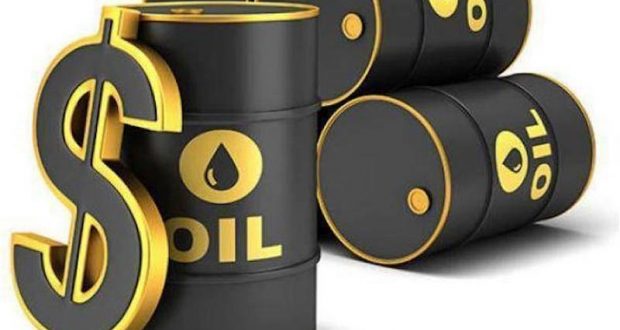…..by Ben Ndubuwa….
Emerging economies that rely heavily on oil exports, such as Nigeria, Angola, and Ecuador, are facing significant economic challenges as oil prices continue to remain volatile. According to a recent Reuters report, these countries need oil prices to hover around $100 per barrel in order to balance their national budgets. However, as global oil prices fluctuate, the economic stability of these oil-dependent nations is at risk.
David Rees, senior emerging markets economist with investment firm Schroders, shared a concerning outlook: “They don’t have any savings to fall back on,” he told Reuters, referring to oil-producing countries with limited financial reserves. “If you get a big hit to your key revenue, then those kinds of big coverages of debts just get worse and worse and worse.”
These countries, which depend on oil exports for foreign currency reserves, are also burdened with high levels of debt and have limited access to affordable borrowing. The combination of declining oil revenues and heavy debt payments presents a tough challenge for many of these nations, especially in the face of global market uncertainties.
The impact of this situation has already been observed in investor behavior. Even amid some positive reforms in countries like Nigeria, which has taken significant steps to reform fuel subsidies and foreign exchange, and Angola’s efforts to reduce its debt, investors remain cautious. As Razia Khan, head of research for Africa and the Middle East at Standard Chartered, explained, “When oil prices see this kind of pressure, investors tend to paint all oil-producing countries with the same brush.”
The global market’s uncertainty has intensified with the election of U.S. President Donald Trump, who promised to reduce energy costs through aggressive oil production. While Trump’s campaign slogan, “drill, baby, drill,” has raised concerns among emerging market oil producers, it has also sparked hope among poorer oil-importing countries who could benefit from lower prices.
However, the reality is that the United States, while the world’s largest oil producer, has limited power over global oil markets. Trump, despite his promises, cannot fully control prices, particularly as the United States has no state-owned oil company that could be directed to increase output. Moreover, the U.S. has limited influence over the OPEC+ coalition, a group of oil producers including Saudi Arabia and Russia.
Even though lower oil prices would likely benefit oil-importing countries, Thomas Haugaard, portfolio manager at Janus Henderson, noted that each country’s situation is unique. “You will have very country-specific problems or challenges with lower oil prices,” he said. “But more than half of the EM investment universe are big importers of oil. There will be winners and losers from that kind of shock.”
Saudi Arabia, the world’s largest oil exporter and a major OPEC player, may seem insulated from the worst effects of price drops, due to its extensive sovereign wealth funds and access to global borrowing. Still, the kingdom, along with other Gulf countries like the United Arab Emirates, has worked to diversify its economy and reduce its reliance on oil. JPMorgan analysts pointed out that a severe price drop could force Saudi Arabia to scale back ambitious megaprojects like the $500 billion NEOM city of the future.
While oil exporters may suffer, oil-importing countries stand to gain. Lower oil prices can reduce inflation and ease the demand for foreign currency. China, the world’s largest oil importer, spends nearly $300 billion on oil annually, followed by India at around $200 billion. Smaller importers, including Indonesia, Kenya, Pakistan, South Africa, Thailand, and Turkey, could also benefit from cheaper oil.
Rees of Schroders noted, “If you put $40 (oil) in and just assume $40 for every day, instead of energy inflation averaging around about zero over the next year or so, it knocked it down to like minus 15.” For emerging economies that subsidize fuel, such as Venezuela and Iran, lower oil prices could also offer a financial reprieve. These nations spend more than 20 percent of their GDP on fuel subsidies, and a drop in oil prices could significantly reduce their fiscal burden.
However, analysts caution that lower oil prices do not guarantee economic relief. The trade war threats by President Trump, which have the potential to disrupt global trade, could counteract the benefits of cheap oil. A trade war could lead to a demand shock, negatively impacting global economic growth and creating further instability for emerging markets.
For South Africa, a major exporter of platinum, coal, and iron, a downturn in global commodity prices could prove devastating. Countries like Egypt, Kenya, and Pakistan, which have relied heavily on foreign funding to support their debt-laden economies, could also face significant challenges if Gulf oil producers, who are major financiers, reduce their lending.
Furthermore, the longer-term effects of lower oil prices could hinder the global transition away from fossil fuels, which could damage the prospects of energy-importing emerging economies. As Alejo Czerwonko, chief investment officer for emerging markets Americas at UBS Global Wealth Management, explained, “Meaningfully lower prices can be associated with periods of depressed global economic activity, which is not good for emerging markets.” The reasons behind why oil prices fall could have lasting negative consequences for developing economies already grappling with the pressures of climate change.
The path forward for emerging oil producers remains uncertain. While lower oil prices could offer some relief to oil-importing nations, the global economic impact, coupled with the volatile political landscape, means that emerging economies will continue to face significant challenges in the years ahead.
 Financial Energy Review
Financial Energy Review





